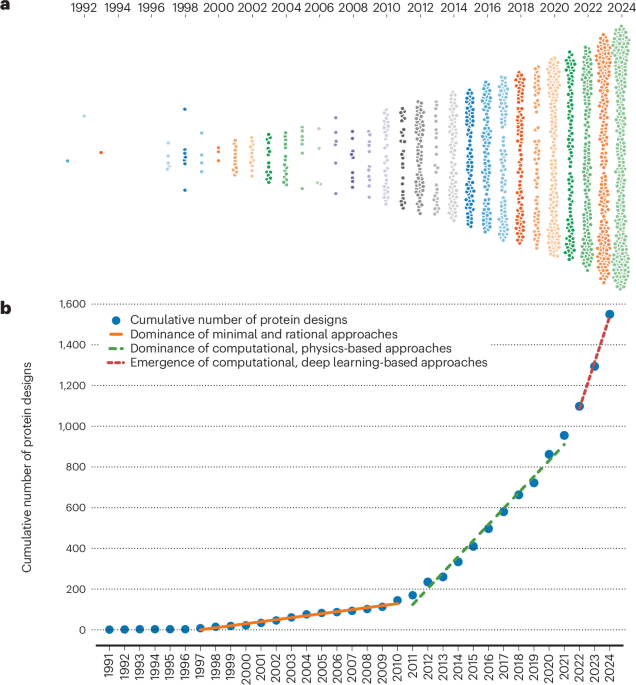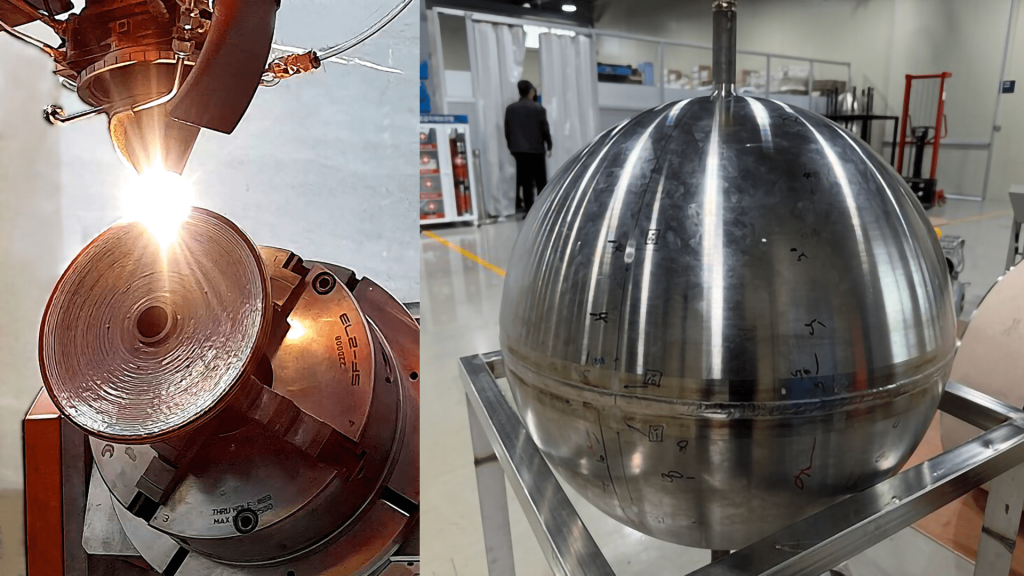Now Reading: 40 Years of Innovation: Insights from the Protein Design Archive
-
01
40 Years of Innovation: Insights from the Protein Design Archive
40 Years of Innovation: Insights from the Protein Design Archive

Quick Summary
- Protein design has significantly evolved over the past 40 years, transitioning from rational design strategies to data-driven approaches.
- The field now focuses on creating novel proteins aimed at solving societal challenges and understanding sequence-structure-function relationships.
- Notable advancements in protein design include the creation of small-molecule and protein binders,entirely novel protein folds,and contributions recognized with a Nobel Prize.
- A major challenge identified is the lack of a centralized resource cataloging designed proteins. Such a resource could help streamline efforts by providing insights from previous work and guiding future innovations.
Indian Opinion Analysis
Protein design represents an exciting frontier in science with potential applications across healthcare, agriculture, energy solutions, and beyond. The progress made underscores humanity’s ability to manipulate biological systems for problem-solving; though, its implications shoudl be carefully analyzed. For India-a nation rapidly advancing in biotechnology-this domain presents unique opportunities for further research funding, innovation hubs focusing on molecular biology tools, and international collaboration. developing accessible repositories or resources for designed proteins would democratize knowledge access globally while boosting India’s scientific competitiveness.
read more: sourceQuick Summary
- A scientific research collaboration involving institutions like the University of Edinburgh, University of Bristol, and others led to the creation of the Protein Design Archive (PDA) website.
- The PDA functions as a repository for data related to protein design and includes datasets summarized as of January 1, 2025.
- Researchers from multiple fields worked on data collection, processing, analysis, and manuscript readiness for this project.
- Funding was provided by UK Research and Innovation’s EastBio Doctoral Training Partnership program and other organizations like the UKRI Biotechnology and Biological Sciences Research Council.
- Competing interests were declared absent by all authors involved in the study.
For full article insights: read More
Indian Opinion Analysis
The creation of an archive dedicated to protein design is a meaningful step forward in global biotechnology research.For India-a country striving to advance its bioinformatics infrastructure-such projects highlight key areas where international collaboration could be impactful. Given India’s growing interest in biosciences and its emphasis on building IT-enabled frameworks for research repositories, learning from platforms like PDA could guide domestic efforts toward creating similar databases tailored for regional advancements in health sciences or agricultural biotechnology.
Investments seen through projects funded by UKRI also stress global priorities in funding multidisciplinary teams-a model that nations including india might consider adopting more extensively to bolster innovation output domestically while contributing globally within competitive frameworks.Quick Summary:
- The article discusses the Protein Design Archive (PDA), analyzing insights from 40 years of advancements in protein design.
- PDA compiles extensive data and designs generated over decades,assisting in breakthroughs across biotechnology and pharmacology.
- Insights are drawn from studies led by experts like Chronowska, Stam, Woolfson, and others.
- Published on March 21,2025,the article is available through Nature Biotechnology with DOI: https://doi.org/10.1038/s41587-025-02607-x.
Indian Opinion Analysis:
The progress of extensive repositories like the Protein Design Archive reflects a significant evolution in scientific research methodologies globally. For India-a country investing heavily in biotechnology-such archives provide reference points for researchers seeking innovations in drug discovery and agriculture-related genetic tools. Indian institutions could possibly enhance global collaborations by utilizing such platforms to advance indigenous scientific solutions while contributing to international databases.


























